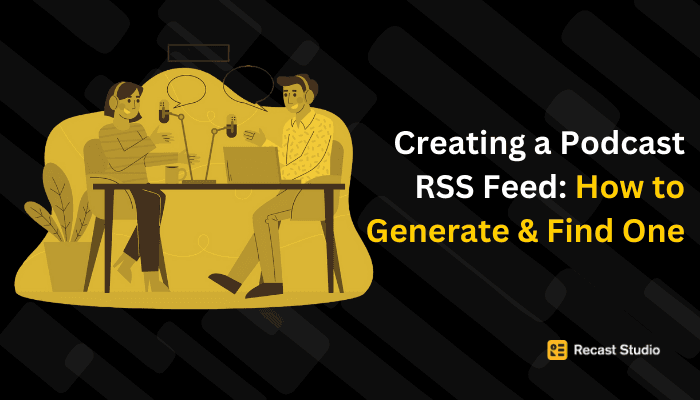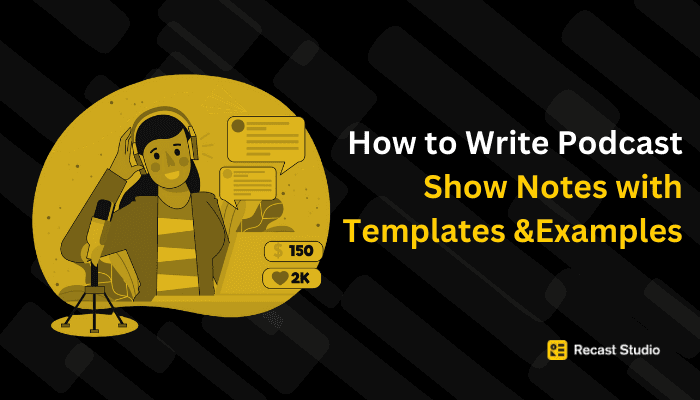Podcasting
Podcast Citation Guide How to Cite Podcasts Correctly
Citing podcasts correctly isn't just about giving credit—it's vital for credibility. Learn the basics of MLA, APA, and Chicago styles to enhance your work's integrity.
23 set 2024
Understanding Podcast Citation Basics
Citing podcasts correctly is becoming more essential. Podcasts cover diverse topics and are increasingly recognized as valuable sources of information. Proper citation not only credits creators but also enhances the credibility of your work in academic and professional settings. Understanding the basics of podcast citation can set a solid foundation for your writing and research.
Why is citation important? It acknowledges the hard work of podcast creators and ensures your audience can verify sources. Proper citations contribute to the reliability of your work, whether you're writing an essay, a report, or a blog post. By using standard citation styles, you maintain consistency and clarity in your references.
Several citation styles are commonly used for citing podcasts:
MLA: Often used in humanities, it focuses on authorship and the medium of publication.
APA: Common in social sciences, it emphasizes the date of publication.
Chicago: Known for its flexibility, it offers two systems—notes and bibliography or author-date.
Each style has unique rules, but they all require certain information: the creator's name, the title of the podcast, the episode title, the date of publication, and where it can be accessed. Familiarizing yourself with these elements will help you cite podcasts accurately. This section will guide you through understanding different citation structures and the key components necessary for correct podcast citation.
Key Elements of Podcast Citation
Citing podcasts involves a few key elements. These are necessary for giving proper credit and ensuring your audience can verify your sources. Here's what you need to know.
First, include the contributor's name: This typically means the host or narrator. It's crucial for acknowledging who is providing the content.
Next, the episode title and podcast title: The episode title identifies the specific piece of content, while the podcast title refers to the overall series.
Don’t forget the publisher: This is often the production company or platform where the podcast is available. It provides context about who is responsible for producing the content.
The date is another essential component. It tells when the episode was published, helping your audience find the exact source.
The URL: This is the link to the podcast episode, making it easy for others to access the content directly.
Different citation styles like MLA, APA, and Chicago have slight variations in how these elements are presented. For instance, APA style emphasizes the host's role, while MLA focuses more on the publication medium. Understanding where to find these details in a podcast episode or series helps in crafting an accurate citation. For additional tips on enhancing your podcast's reach, consider exploring actionable strategies to promote your podcast, which can also aid in increasing discoverability.
Each plays a role in creating a complete reference, essential for maintaining the credibility and traceability of your work.
Podcast Citation Styles Explained
Citing podcasts requires attention to detail. Here’s how to do it in MLA, APA, and Chicago styles. Each has its quirks, so let's break them down.
MLA Style:
Structure: Contributor's Last Name, First Name. "Episode Title." Podcast Title, Publisher, Date, URL.
Example: Doe, John. "The Art of Teaching." Educational Insights, EduPublishing, 20 Jan. 2023, [insert URL].
MLA focuses on contributors and the medium. It’s commonly used in the humanities.
APA Style:
Structure: Host's Last Name, First Initial. (Host). (Year, Month Date). Episode title (No. if available) [Audio podcast episode]. Podcast Name. Production Company. URL.
Example: Doe, J. (Host). (2023, January 20). The Art of Teaching [Audio podcast episode]. Educational Insights. EduPublishing. [insert URL].
APA emphasizes the date and host. It’s typical for social sciences.
Chicago Style:
Structure: Host's Last Name, First Name. "Episode Title." Podcast Title. Podcast audio. Publication Date. URL.
Example: Doe, John. "The Art of Teaching." Educational Insights. Podcast audio. January 20, 2023. [insert URL].
Chicago offers flexibility with notes-bibliography or author-date systems. It allows for producer and runtime details in footnotes or bibliography.
Use Podcast Citation Generator to cite the podcasts effortlessly
When citing a podcast series, include the series title and range of years. Each style has specific rules for this, ensuring thorough documentation. Understanding these differences helps maintain academic integrity and professionalism. For those looking to enhance their podcast's reach, consider exploring various strategies to promote your podcast effectively, which can complement your citation efforts by attracting a broader audience.
Conclusion
Proper citation maintains credibility and integrity in your writing. It’s about acknowledging the creators who provide valuable insight through their work.
Accurate citation ensures your audience can verify sources. It’s not just about following rules; it’s about respecting the content creators. Using styles like MLA, APA, or Chicago helps keep your references clear and consistent. Each style has its structure, but all focus on key elements like contributor names, episode titles, and publication dates.
To make citation easier, consider using citation management tools. These tools can help organize references and format them according to the required style. They can also assist in checking for plagiarism, ensuring your work remains original and well-referenced.
Here's a quick recap of what to remember:
Acknowledge Creators: Always credit the podcast creators.
Use Consistent Styles: Stick to one citation style for clarity.
Utilize Tools: Use citation management tools for accuracy.
Check for Plagiarism: Ensure your work is original and credible.
By mastering podcast citation, you enhance your academic and professional work. It is a skill that not only adds value to your writing but also honors the creators of the content you reference.
Latest articles
Ai Powered
Marketing Assistant for Your Podcast
A generative AI tool that automatically turns your podcast episode into short video clips & writes show notes, blog posts, social media posts and more in minutes.

